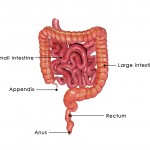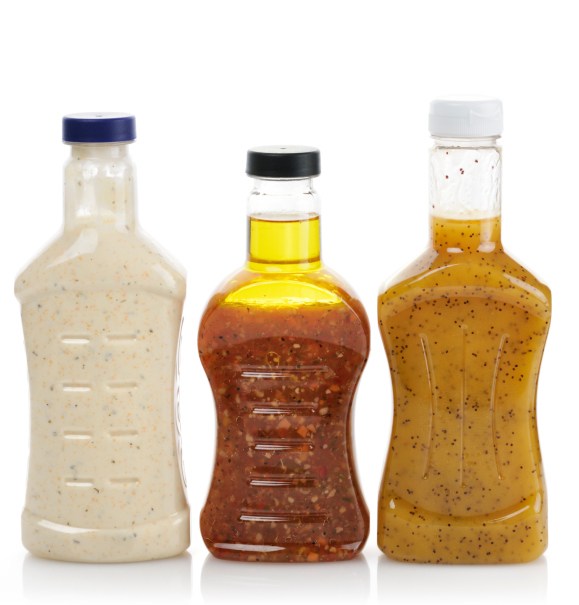Peptic ulcer (stomach ulcer) causes, symptoms, diet, and treatment
 Peptic ulcer (stomach ulcer) is an open sore in the lining of the stomach, lower esophagus, or small intestine, typically resulting from inflammation caused by bacteria or erosion caused by stomach acid.
Peptic ulcer (stomach ulcer) is an open sore in the lining of the stomach, lower esophagus, or small intestine, typically resulting from inflammation caused by bacteria or erosion caused by stomach acid.
There are three types of peptic ulcers: gastric, esophageal, and duodenal. The different types of peptic ulcers describe where the ulcer is located, whether that is in the stomach, esophagus, or small intestine.
Many people believe that consuming high amounts of spicy foods can lead to peptic ulcers, but this is merely a myth and no truth stands behind it. Furthermore, stress does not lead to peptic ulcers either.
Peptic ulcer causes, symptoms
As mentioned, peptic ulcers are commonly caused by bacteria or erosion due to stomach acid. The most common bacterium that causes peptic ulcers is H. pylori. Other causes of peptic ulcers include frequent use of aspirin, ibuprofen, and other anti-inflammatory medications, as well as smoking, drinking excessive alcohol, radiation therapy, and stomach cancer.
The main symptom of peptic ulcers is a burning sensation in the abdomen, which can be felt from the belly button up to the chest. This burning sensation can vary in intensity and may change from the moment you wake up to when you go back to sleep. In its early stage, a small peptic ulcer may be symptomless.
Other symptoms of peptic ulcers include:
- Changes in appetite
- Nausea
- Bloody or dark stool
- Unexplained weight loss
- Indigestion
- Vomiting
- Chest pain
Peptic ulcer complications
If left untreated, peptic ulcers can lead to complications including the following:
- Perforation – a hole develops in the stomach lining or the small or large intestine, leading to infection.
- Internal bleeding – significant blood loss can occur internally, which requires immediate hospitalization. Symptoms of internal bleeding are lightheadedness, dizziness, and black stool.
- Scar tissue – thick tissue develops around the injury site, making it difficult for food to pass through the digestive system. Signs of scar tissue are vomiting and weight loss.
Peptic ulcer treatment options
 To treat a peptic ulcer properly, it’s best to treat the underlying cause. If the peptic ulcer was caused by H. pylori, then your doctor will put you on a treatment plan in order to help get rid of the bacteria. A combination of medications is prescribed, taken for at least two weeks, in order to kill the infection and reduce stomach acid.
To treat a peptic ulcer properly, it’s best to treat the underlying cause. If the peptic ulcer was caused by H. pylori, then your doctor will put you on a treatment plan in order to help get rid of the bacteria. A combination of medications is prescribed, taken for at least two weeks, in order to kill the infection and reduce stomach acid.
The antibiotic treatment may lead to some uncomfortable side effects, like a bad taste in your mouth, diarrhea, or an upset stomach.
If the peptic ulcer is not caused by H. pylori, then your doctor may put you on proton pump inhibitors (PPIs), which help to reduce stomach acid to allow your ulcer to heal properly. Acid blockers, too, may be beneficial to reduce stomach acid and pain.
Peptic ulcer home remedies and lifestyle changes
Home remedies and lifestyle changes can offer relief if you are dealing with a peptic ulcer, along with helping it to heal quicker. The following home remedies and lifestyle changes are worth a try if you are facing a peptic ulcer.
- Consume a healthy diet, which can provide your body with essential vitamins to promote healing.
- Consider switching pain relievers as they can be a cause for peptic ulcers.
- Control your stress – although stress won’t cause an ulcer, it can worsen it if you already have one.
- Don’t smoke.
- Limit or avoid alcohol.
- Protect yourself from infections – wash your hands often.
- Use caution when it comes to pain relievers.
Peptic ulcer dietary changes
We mentioned briefly that consuming a healthy diet is necessary to help aid in the healing of a peptic ulcer. But what exactly does that mean? Here are a few guidelines to keep in mind when you are eating with a peptic ulcer.
- Avoid caffeine, alcohol, and smoking.
- Avoid milk and milk products as they promote acid secretion.
- Eat smaller amounts of food more often as opposed to large meals.
- Don’t let your stomach remain empty for prolonged periods of time.
- Drink peppermint and chamomile tea, which can sooth the lining of the digestive tract.
- Take a teaspoon of aloe vera juice after meals.
- Consume foods high in vitamin C as preventative measures.
- Consume plenty of fiber.
- Eat foods high in flavonoids like apples, celery, and cranberries.
- You may wish to avoid spicy foods as some patients report worsened symptoms.
By following these lifestyle and diet tips you can help heal your ulcer much sooner and avoid any complications.
Gastritis stomach inflammation symptoms, causes, and treatment
If you haven’t heard of gastritis, it is when inflammation occurs within the lining of the stomach. Common gastritis symptoms may include upper abdominal pain, nausea, and indigestion. When acute or mild, gastritis is treatable and will go away. But if left untreated, it can develop into ulcers or even stomach cancer. Continue reading…
-
10 Easy Ways to Lose Weight
There are number of ways to lose weight fast, but what matters
-
Is There A Diet For Diabetic Patient Management Which Actually Works?
1 of the best things regarding kind II d
-
Do You Need Hypnosis for Weight Loss?
Perhaps there is an inner voice saying t
-
Permanet Weight Loss
There are actually a lot of a wide range
-
Close Kept Secrets To Weight Loss Lesson 27
Imagine your life exactly as you want it to be! What does it look lik
-
Your Dream Body In Just 2 Hours Per Week!
Most people hate the idea of having to exercise. They don’t
- DON'T MISS
- BEST Fat Loss Workouts Youre Not Doing
- The 12 Best Foods To Eat When You’ve Hit A Plateau
- Home Free, South Beach Diet Phase Three
- Steeping Stones To Shed Weight Quick 2011
- Childhood Obesity Prevention
- 5 Tips To Keep Your Mental Health In Shape As You Diet
- Does Proactol Truly Get the job done? - Master About Proactol Unwanted fat Binder
- How the Garcinia Cambogia Extract Stands Out from Among the Rest
- Sugar High: Diabetes The Killer Disease
- Over The Internet Weight Reduction Applications: Are They Value The Money?




